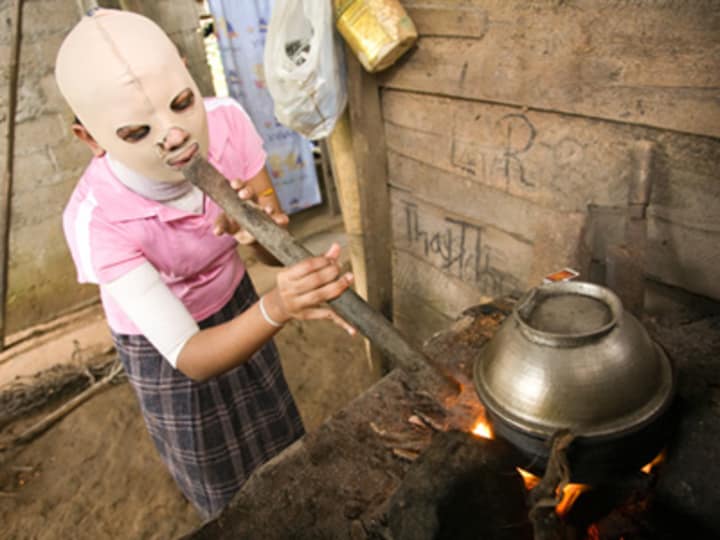
This post is part of a series produced by the NGO alliance InterAction and Devex around the International Day for the Eradication of Poverty.
When we talk about global health challenges, we often cite the ones that receive the most attention or funding. AIDS and malaria come to mind. You probably don’t think about injuries sustained from cooking fires or acid attacks. But the truth is, severe burns are a leading cause of mortality and morbidity in developing countries — a crisis afflicting the poor that hardly anyone is talking about.
In resource-strained parts of the world, open fires and kerosene cookstoves are relied upon for cooking, heating and lighting. Add in to the mix overcrowded living conditions, lack of proper fire safety measures, loose clothing worn by women and insufficient supervision of children. Suddenly, it’s not hard to see why someone is severely burned every three seconds in a developing country.
That’s more than 10 million people each year. For those burn survivors around the world who do not have access to basic medical care, burns are left to heal by themselves, creating a permanent tightening of the skin as the burn wound heals. As a result, even a minor burn can restrict one’s ability to walk or cause a working hand to become an unusable fist.
In our 44 years of providing reconstructive surgery for the poor, ReSurge International has seen too many children come to us with debilitating burn injuries — with arms fused to their torso or hands unable to hold a pencil — because the straw mat they were sleeping on as an infant caught fire or the cookstove they were playing beside suddenly exploded. We’ve seen too many adults who can’t work and provide for their family because a burn injury prevents them from straightening a leg or moving their neck.
These are the cases that Dr. Goran Jovic, the only reconstructive surgeon working in Zambia, sees every day. Jovic, who directs ReSurge’s Surgical Outreach Program in Zambia, accepts patients with all sorts of reconstructive surgical needs, but about 75 percent of the procedures he performs are to correct burn injuries.
In sub-Saharan Africa, burns are the 16th leading cause of death for people ages 15-49. Infants in this region have three times the incidence of burn deaths than infants worldwide. Through the Surgical Outreach Program, Jovic and his team treat burn survivors both in the capital of Lusaka and in outlying areas. Jovic pilots a small plane to reach patients in rural areas who are not able to make the trip in to the city.
Jovic has treated more than 1,100 burn patients. These patients typically undergo multiple procedures to release burn contractures, and they often need physical therapy afterward. Many of the burn patients who Jovic takes on through the Surgical Outreach Program have lived for years with disabilities caused by burns. But we have learned through our work in the field that just with simple and affordable treatment provided soon after a burn, 50 to 60 percent of burn disabilities are preventable.
Burns are acutely tied to poverty, according to Jovic, who says that in his experience, the people most susceptible to burn injury in the developing world are poor people. Women and children are also disproportionally affected by burn injuries, the poorest of whom are typically the ones with little to no access to that basic medical care that can prevent burn injuries from creating a disability.
“The beauty of plastic surgery is to return the patient as a productive member of society,” says Jovic. “If a person has both hands burned and can’t even feed himself, and you open up those hands, that person gets his life back.”
ReSurge International provides nearly 5,000 free surgeries each year through Surgical Outreach Programs like the one that Jovic heads up. These surgeries enable the developing countries where we work recover more than $75 million in lost wages over the lifetimes of those patients, who will now be able to work.
The work we are doing to address the global burns crisis is as much about eradicating extreme poverty as it is about restoring the health and dreams of our patients. Severe burns leave their victims with disabilities that cost more than $80.2 billion a year in lost productivity alone; 95 percent of that economic burden falls on developing countries.
By supporting the prevention and correction of debilitating burn disabilities through projects like the Surgical Outreach Program in Zambia, we will continue making progress against poverty for those who need it most.
Join the Devex community and access more in-depth analysis, breaking news and business advice — and a host of other services — on international development, humanitarian aid and global health.
